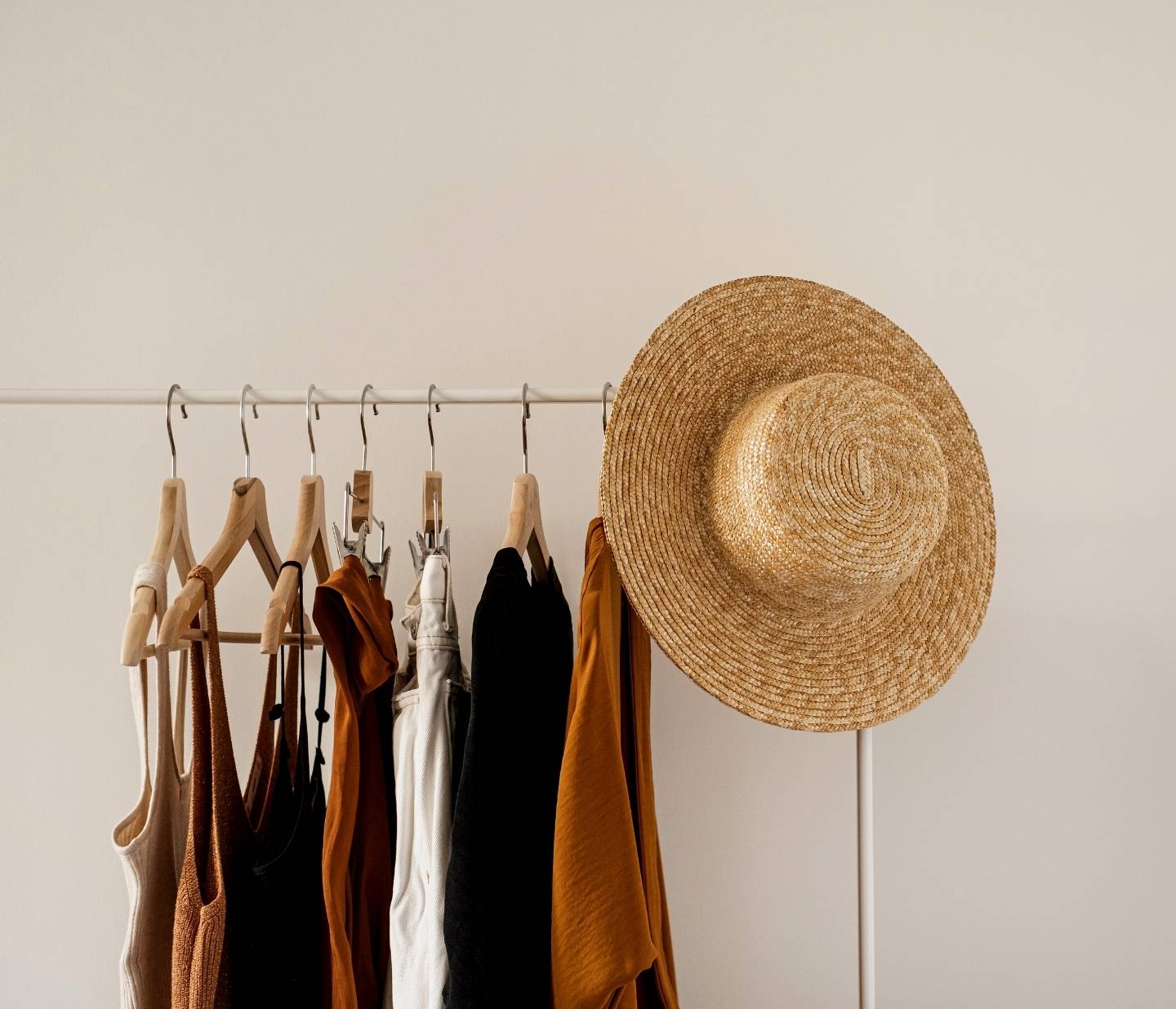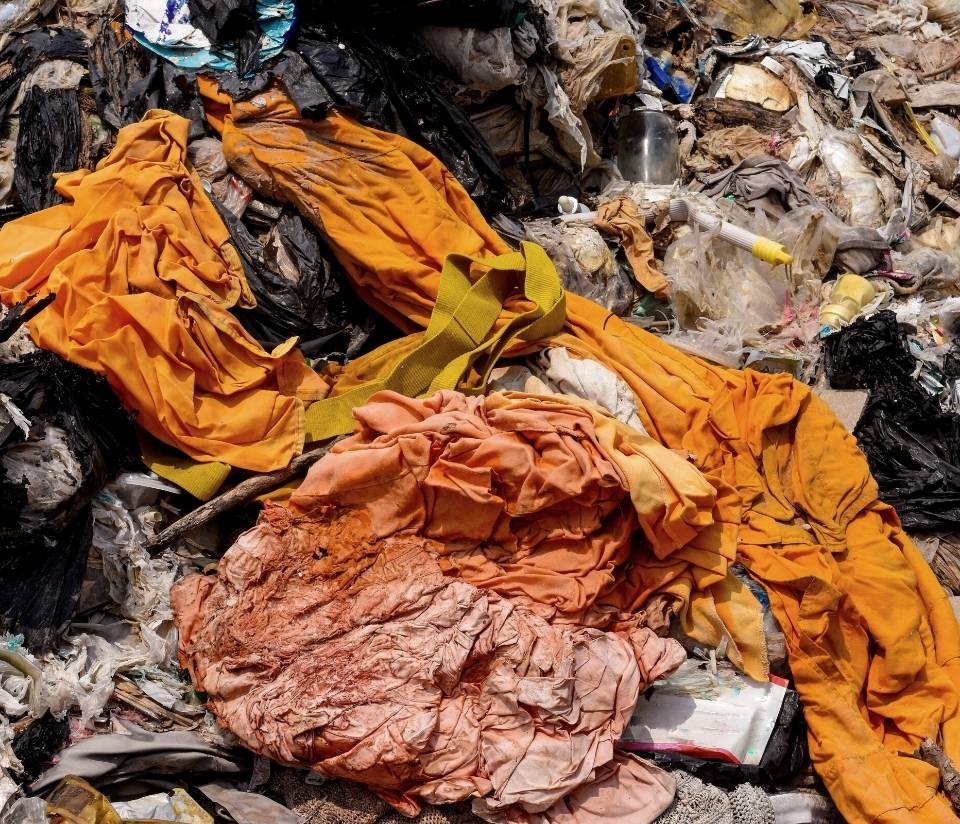
Affordable, Ethical Clothes
See our Ethical Fashion Retailers Ratings Table to compare brands
What is fast fashion and why is it so bad for people and the planet?
Have you heard of the phrase ‘fast fashion’? The term ‘fast fashion’ describes the serious environmental, human, and animal welfare impact of clothing retailers. But what is fast fashion? And how can ethical clothing brands be a more sustainable way to look and feel great?
Fast fashion refers to the rapid pace at which clothing is designed, manufactured, purchased, and discarded. Garment workers on poverty wages produce popular or ‘trendy’ items of clothing. These garments are mass-produced with low-cost, unsustainable materials to meet consumer demand
Our Ethical Fashion Retailers Ratings Table shows how brands have scored for their sustainability, animal welfare, and human rights record. If you want to boycott fast fashion companies and buy from a sustainable clothing company, The Good Shopping Guide ethical comparisons and ratings tables show you the brands to avoid. The table also includes options for sustainable fashion companies in the UK that offer affordable, ethical clothing. The table helps you shop ethically on a budget.
What is a micro trend?
A micro trend describes a fashion trend that lasts for a short period of time, such as a couple of weeks, or less than a month. Social media drives micro trends in particular. Visual platforms such as Instagram and TikTok are particularly responsible for the rise in micro trends. Influencers promote fast fashion brands like Shein, Boohoo, Missguided and Pretty Little Thing. Clothes go viral for a matter of days, sell out, and are then disposed of once the micro trend is over. Micro trends generate huge turnover for fast fashion brands, huge amounts of waste and huge demand on manufacturers and clothing workers.
The environmental impact of fast fashion
The fast fashion industry has exacerbated the climate crisis. According to the World Bank, the fashion industry is responsible for 10% of annual carbon emissions and 20% of wastewater worldwide. In addition, fast fashion clothing is typically made with cheap synthetic materials such as polyester, acrylic, and nylon. These materials contain plastic microfibres, which is especially concerning when you consider how much clothing is discarded and ends up in waste. Every year, half a million tons of plastic microfibres are dumped into the ocean – the equivalent of 50 billion plastic bottles!
The poor human rights record in the fast fashion industry
The fast fashion industry is rife with modern slavery, sweatshops, and inhumane working conditions. Fast fashion brands seek out manufacturers in countries with the most relaxed labour laws, so they can exploit garment workers by paying them as little as possible. Fast fashion brands do this to increase their (already huge) profit margins.
Most fast fashion garments sold in the UK are made in Asia. Countries like China, Bangladesh, and Vietnam have relaxed labour laws. Therefore, companies pay garment workers shockingly low wages that would be considered illegal in most European countries. War on Want found that most Bangladeshi garment workers make just £25 a month. This is £20 less than the estimated minimum needed to provide a family with food, shelter, and education.
This is how fast fashion brands keep costs so low. Fast fashion brands intentionally trap their workers in the poverty cycle to make large profits.

Our research: the worst fast fashion brands
The Good Shopping Guide’s research reveals the worst fast fashion brands in the UK. We found that many fast fashion brands are still engaging in unethical environmental activities and human rights abuses. (Check out our Ethical Fashion Retailers Ratings Table to compare brands.) Boohoo Group and its subsidiaries are amongst the worst fast fashion brands. Boohoo also owns many of the UK’s most popular fast fashion brands, including Pretty Little Thing, Nasty Gal, Dorothy Perkins, Burton, Coast, Oasis, Warehouse, and Wallis.
Although most human rights abuses in the fast fashion sector occur overseas, there are many examples much closer to home. A report from Labour Behind the Label exposed the workers’ rights abuses in several garment factories in Leicester.
The report found that garment workers in Leicester were being paid as little as £3.50 an hour. This is well below the UK’s minimum wage. Boohoo Group accounts for 75-80% of Leicester’s garment production and was considered the main culprit in these human rights violations.
Due to the serious worker exploitation within the fast fashion industry, our research includes a specific category that accounts for human rights criticisms. Unfortunately, Boohoo Group is not the only company to receive a bottom rating under this criterion. Information on which other brands have scored poorly under our Human Rights category can be found in our Ethical Fashion Retailers Ratings Table.
Affordable ethical clothing: A step towards sustainability
The sheer size and influence of the fast fashion industry is overwhelming. However, after several successful campaigns, mindful shoppers are demanding ethical and affordable clothing as a sustainable alternative to fast fashion.
We understand that affordability is important to consumers, as some sustainable clothing brands can be expensive. At The Good Shopping Guide, we believe that everyone should have access to affordable ethical clothing.
For this reason, we make sure to include brands that offer affordable ethical clothing that is accessible. Many of the brands featured in the top third of our Ethical Fashion Retailers Ratings Table sell affordable ethical clothing for similar prices to fast fashion brands.
Greenwashing and fast fashion brands
Due to the rise in demand for ethical fashion, many brands are greenwashing and claiming to be more ethical than they actually are. Brands like H&M, as well as its subsidiaries Monki and & Other Stories, are some of the worst examples of brands that claim to offer affordable ethical clothing when in reality they are not ethical at all.
These brands receive a low score of 53 in our research, which reveals that their claims do not match up. When choosing an ethical clothing brand, keep an eye out for fast fashion brands that may try and mislead you! The Good Shopping Guide helps you identify which brands are greenwashing.
Which of my favourite fashion brands are ethical?
Check our Ethical Fashion Retailers Ratings Table to see how your favourite clothing brands score for the categories that matter to you most. (You might be surprised by some of the results!)
Brands such as People Tree, Finisterre and Seasalt all score very highly, and School Uniform Shop has gained Ethical Accreditation with The Good Shopping Guide. Any of these brands are good ethical fashion choices!
Finally, it is important to remember that fast fashion brands relies on overconsumption. Many of us feel pressured to keep up with trends and purchase far more clothing than we need. Don’t fall for the micro trends! Whilst purchasing ethical clothing is important, we also encourage you to minimise the amount of clothing you buy overall. Before shopping, ask yourself – do I need this? Will I actually wear it? These considerations will help you to make your purchases with a clear conscience.
See our Ethical Fashion Retailers Ratings Table to compare brands.
The Good Shopping Guide has researched the biggest global fashion brands. Click on any brand name to access our detailed analysis and assessment.
People Tree, Sancho’s, School Uniform Shop, Finisterre, Joules, Seasalt, Whistles, Monsoon Accessorize, Phase Eight, White Stuff, ASOS, Evans, Fat Face, French Connection, Miss Selfridge, Patagonia, River Island, Topman, Topshop, & Other Stories, Bershka, H&M, Monki, New Look, Pull&Bear, Stradivarius, Zara, adidas, Crew Clothing, F&F at Tesco, Marks & Spencer, Next, Primark, The North Face, Tommy Hilfiger, TU at Sainsbury’s, Mango, Boohoo, Burton, Coast, Dorothy Perkins, Gap, Nasty Gal, Nike, Oasis, Pretty Little Thing, Wallis, Warehouse, Fila, George at Asda, Matalan, Shein, Missguided and I Saw It First.